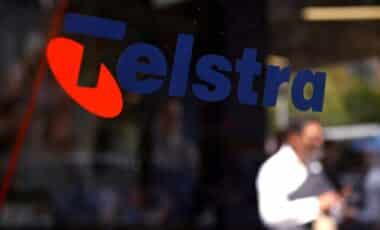An investigation by ABC News has led to a significant crackdown in the Australian ATM industry. EFTEX, a payment processing company based in New South Wales, has decided to stop facilitating transactions for his located in tobacco stores and other “high-risk” businesses. This move follows revelations that private ATM suppliers were targeting illegal tobacco shops, allowing these stores to process off-the-books cash transactions.
EFTEX processes payments for over 5,500 ATMs across Australia. The company, in collaboration with major banks such as Westpac and ANZ, announced that starting from September 15, 2025, it would no longer support its transactions in businesses deemed high-risk. These include tobacconists, adult entertainment venues, and potentially other locations that could be involved in illicit activities. The decision comes after growing concerns about money laundering and criminal activities tied to these private ATMs.
The Role of Private ATMs in the Illegal Tobacco Trade
ABC’s investigation uncovered that illegal tobacco shops had been relying heavily on private ATMs as a quick way to access cash for unreported sales. Some of these small businesses even hosted two machines to meet the demand for cash from customers. This highlighted a troubling trend where, which are typically seen as legitimate financial tools, were being used to fuel the underground market.
Notably, the investigation revealed that some criminals, including a known drug dealer, had been operating private ATMs. This situation raised concerns about how easily could be misused for money laundering. In some cases, its operators were able to load the machines with proceeds from criminal activities, further fueling illegal trades, such as the sale of untaxed tobacco.
The move comes after an ABC investigation revealed major private ATM suppliers were targeting the illegal tobacco industry. https://t.co/YZ22I0WzKR
— ABC News (@abcnews) July 17, 2025
EFTEX Takes Action Amid Increased Scrutiny
In light of increased media coverage and regulatory scrutiny, EFTEX has taken the step to sever ties with high-risk industries. The company informed its clients that it would stop processing transactions from these high-risk locations, following a growing awareness of the problems within the private ATM market. EFTEX also announced that it would begin seeking more detailed information from ATM operators, including their business structures and ownership details.
Its decision was a direct response to the publicized investigation and the scrutiny from both media and regulatory bodies. The payment processor emphasized that it would no longer work with businesses involved in activities that could potentially lead to financial crimes. In addition, EFTEX will demand detailed data on directors, business owners, and other involved parties to comply with anti-money laundering requirements.
Expert Reactions to EFTEX’s Decision
Financial crime expert Neil Browne welcomed EFTEX‘s move, calling it “a step in the right direction.” He stated th decision to distance itself from high-risk businesses and take action against potential money laundering activities was an important development in the fight against financial crime. Browne also called for other payment processing companies to follow EFTEX’s lead and implement similar measures to better understand the risks involved with their clients.
Browne’s comments reflect the growing concern about the role of private ATMs in illicit financial transactions. He emphasized that EFTEX was taking crucial steps to address the risks posed by these machines. The crackdown on high-risk locations signals a shift toward greater transparency and compliance in the ATM industry, with experts urging other payment processors to adopt similar measures.









